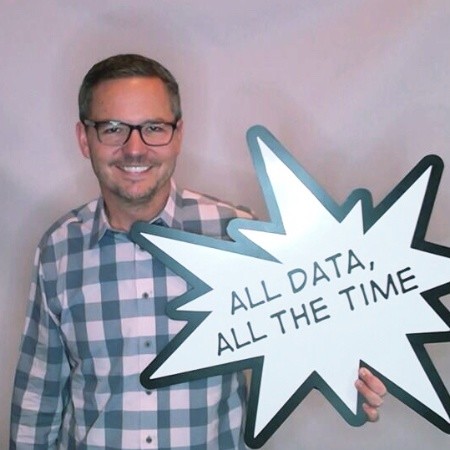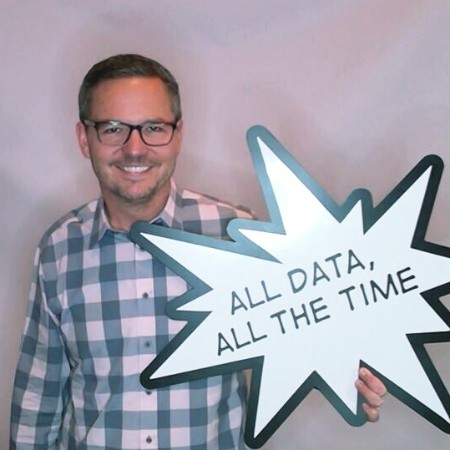 While it’s safe to say computers will never be human, marketers are worrying about their job security as computers become advanced enough to be referred to as AI. Even with half of organizations implementing some shape or form of AI, the technology will never take over for marketers — in fact, it’s actually the opposite.
While it’s safe to say computers will never be human, marketers are worrying about their job security as computers become advanced enough to be referred to as AI. Even with half of organizations implementing some shape or form of AI, the technology will never take over for marketers — in fact, it’s actually the opposite.
AI technology will complement, not replace, the marketer. It should be thought of as a “force multiplier” — something that increases output, makes marketers better at their jobs and benefits the business overall. For example, a CMO should not be wasting time in the rows of an Excel sheet; instead, a robot should take on those tedious tasks to free up time and add more value for business alignment.
The Human Element Needed
The role of today’s marketer is to be an expert in automated technology and, perhaps more importantly, connect and empathize with customers at every point of engagement. Humans have vision, strategy, incentives and creativity, all skills a machine could never automate.
Just like the calculator did not erase the need for mathematicians, AI will not make the marketer obsolete. AI is more of a support system that allows marketers to focus on the parts of the job that matter most: Strategy and creativity.
As the industry continues to evolve from traditional spray-and-pray approaches to more personalized methods, the human element is becoming more critical. Computers don’t know how to incite emotional triggers. Today’s personalized marketing requires a broad-based yet targeted approach, which requires not only getting a message right for one person, but also 20 messages right to 20 groups of people. It’s something that cannot be done without a human marketer.
Creating Rules
The last couple decades made it clear that data could help brands personalize their customer experience, improve engagement, convert more people and so much more. As soon as the industry realized the potential of pairing marketing strategy with data-driven decisions, AI became a critical part of tech stacks since it can uncover data and take action based on a set of rules.
In the early days of AI adoption, marketers experimented with leveraging data to solve complex problems, but automation’s promise was not fully realized right away. At first, marketers were stuck with the mundane, repetitive tasks again, like pushing the “next” button while the data seemed to dictate. This took away all the fun and, as marketers grew restless, the rules of data-based decision making became apparent.
Because AI is essentially a computer listening to data and structuring it in a way that makes sense, human rules-based input enabled it to quickly act on the data. This was the true beginning of AI in marketing.
Embracing AI
As technology continues to play a vital role in marketing, tech stacks keep growing and martech platforms get more complex, mundane tasks waste valuable time. That’s why many marketers are starting to turn to more advanced automation that enables them to oversee and configure technology without being the technology themselves.
With automation, marketers can focus on real, business-impacting activities rather than carrying out repetitive tasks. For example, think about launching a single campaign on both LinkedIn and Facebook. More often than not, this is a time-consuming and complex nightmare. However, certain AI technology can combine inputs flawlessly and launch cross-platform campaigns with one interface.
As marketers, we need to accept the fact that some things should be left up to technology. It’s time to embrace machine learning to predict consumer behavior like never before, but always remember that AI is not the silver bullet. It may take care of mundane tasks, but it will always require a human operator to create the rules.
The bottom line: AI is here to help. It’s not to be feared or avoided — let it help you do your job better and smarter.
Jason Widup is the VP of Marketing for Metadata.io, an autonomous demand generation platform with proprietary technology that helps B2B marketers generate demand at scale, convert target accounts to customers faster than legacy methods, and ensure their efforts drive revenue. He’s a sophisticated SaaS marketing operations, technology and analytics leader with over 20 years of marketing experience. Jason has held leadership, consulting and advising roles at Tableau, Microsoft, Getty Images, Lytics, McCann Worldgroup and others. He’s also an influential voice throughout the B2B marketing community and produces a video series called By Marketers, For Marketers.







